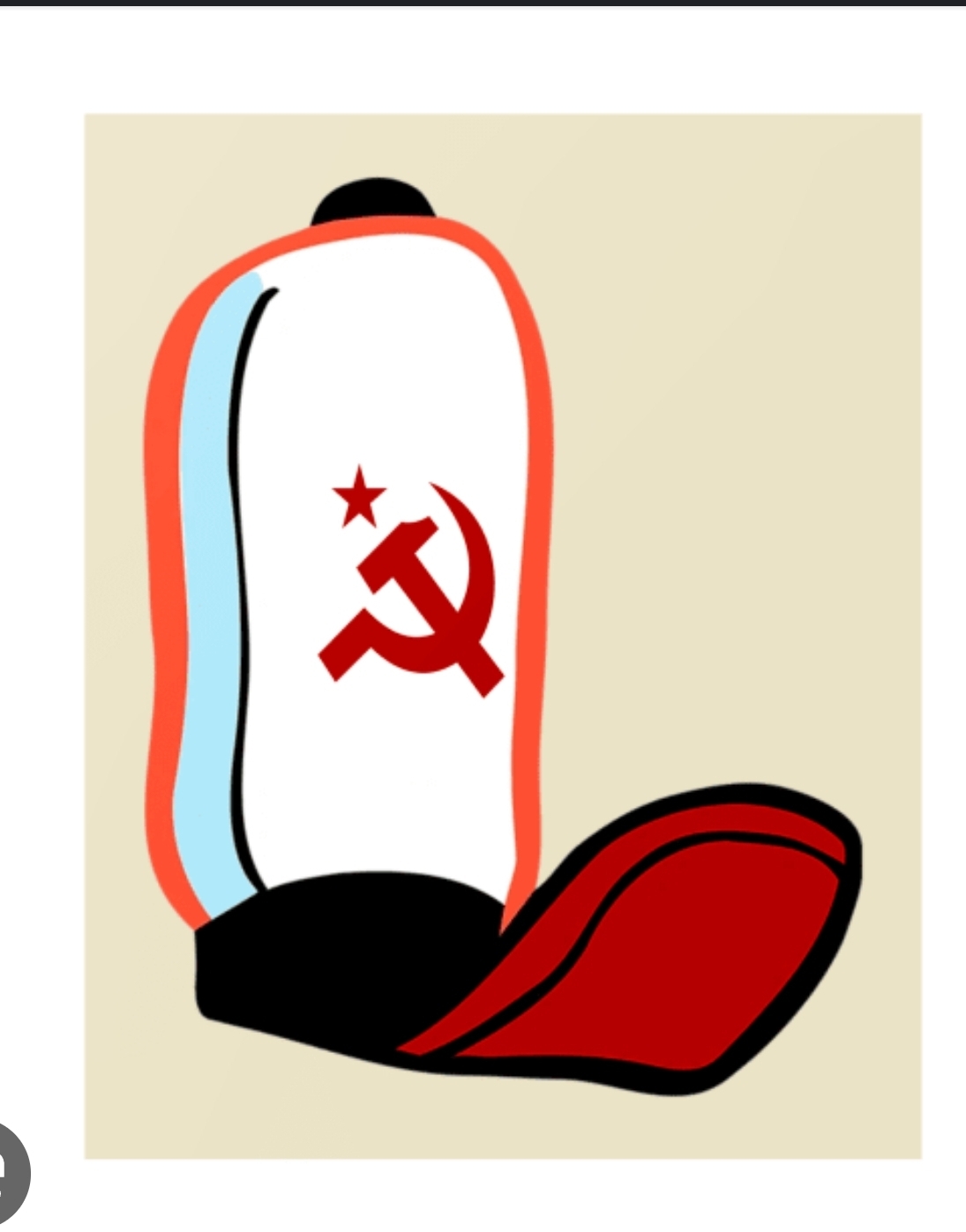It's very obvious that ![]() is circling the drain now, but clearly this didn't just happen in a vacuum. It must've started crumbling at some point... but when?
is circling the drain now, but clearly this didn't just happen in a vacuum. It must've started crumbling at some point... but when?
Some people might say it started after 9/11, others might say it goes back to the Raegan administration. A few might even say it started after losing the Vietnam War, or when they went off the gold standard. Or maybe even earlier...
What do you think? ![]()
1970s oil crisis and stagflation
That was the point where the capitalists said "we have a problem, and the solution from now on is going to be to strip the copper out of the walls"
 but we don't want it to look like we're just stripping the copper out of the walls, so we'll invent ever more abstract financial instruments to cover for ourselves and congratulate ourselves for our ingenuity the entire time
but we don't want it to look like we're just stripping the copper out of the walls, so we'll invent ever more abstract financial instruments to cover for ourselves and congratulate ourselves for our ingenuity the entire time
The early 1970s marks a downturn of the rate of profit which the US has not been able to escape, only delay through a neoliberal turn, increasing financialisation etc. by and large I feel that the rise and fall of a hegemon can't be overly simplified but if you're gonna go by a quick and dirty rule I think that one suffices.
i was going to say the 70s stagflation nonsense leading towards the hollowing out and outsourcing of american manufacturing but idk I'm ignorant
Part of the reason stag-flation "wasn't supposed to happen" was because it was expected the government would step in and prevent it. Nixon froze grocery prices in response. Can you imagine a president doing that today? Since then, all the blank-check intervention has been on behalf of capitalists, of people who own things for their living.
yeah I know, with the minor exception of emergency covid shit (i.e. the trump bux and enhanced unemployment) the working class has had fucking nothing for decades
I see people here mentioning a lot of good, specific points regarding American decline like the events of 2008 and I would just add to that, that events like those are ultimately downstream of capital's attempts to restore profitability
Agree with this. The post-ww2 period was the height / peak of US power, militarily and economically, and by the 70s it started it's slow decline, esp in manufacturing. They do a lot of things to forestall it, like converting from an industry to finance capital, but you can't keep that up forever.
I'm gonna answer the opposite of this question, cus there's already some good answers here already; "When does decline stop, when does the structure die and some new historical arrangement emerge?"
The answer is, it might not. Look at our preceding hegemon, the British Empire. They still have that monarchy! And the same parliamentary government, with a special extra house just for nobility. The off-shoring of production, a steadily declining living standards, and a growing irrelevancy on the world stage may be the most clear markers of a chapter titled The End of Empire in a history book... but, without actual effort and organizing, all the organs and chambers of empire just... keep existing. They have momentum, but only just -- everyone involved thinks it's easier to keep it up than start over, so it limps along. It's weird as fuck and mildly horrifying.
Yeah I wonder if that's the actual direction the US will go. It won't be like the empires that ceased to exist in the wake of WWI but more like the british empire that gradually becomes less and less relevant.
The big glaring difference is that the US don't have a US to hand things off too. From a certain perspective, China has done what we did to the Brits; studied what worked and what didn't, implementing accordingly. They effectively have a Keynesian-style New Deal economy, only without the liberal backslide into Gilded Age conditions.
But we're not going to hand things off to China. Er, well, we did, happily. With dollar-signs in our eyes and a KA-ching! noise and everything. But we're not going to accept the consequences of that. Maybe instead of accepting the laughable title of "#2 most powerful country in the world" like the Brits did, we'll just be doomed to a forever-Cold War. Completely dependent on the economy across the
PondPacific, but stubbornly refusing to acknowledge it.
I think the UK is a little different than where America is heading because their colony inherited all their power. You could easily view America as an extension of the British Empire. I wouldn't be surprised if its seen that way in the long view of history. I don't think China is going to be quite as chummy and enabling of America as is, the way the Americans were with the British.
I don't think enough is being said that a key difference between the US and the UK is it's geography. It's straddles North America, it has multiple great ports on two oceans, a massive river and lake system in it's center and north, an abundance of resources, and no challenger to it's strength in this hemisphere, though Brazil may approach it. Yes, the manufacturing has gone but with the right plan there is more than enough left in the US to return to that point, if the will were there. What I'm saying is, the US may find itself decline into a multi-polar world, but it will last on as one of those poles for a very long time. Really the only thing at the moment I see changing that is internal strife ripping it apart. And climate change of course, but even then it's so large that various parts will survive. This isn't too sing it's praises but to illustrate that it is a force to be reckoned with, we can hope it will be a paper tiger across the pacific but on it's continent it will have a great deal of muscle for some time. At the very least it's structures will rot but the culture it has created will mean what inherits them could be terrifying even compared to the it's current form. All that is to say it's our duty here to force it's attention away from the international theater to allow movements to grow, and attempt to counter it's evils within, so that at the very least it can be directed towards building a less murderous society than the one it is today. But again, the US landmass is far too large and diverse for me to see it truly slip from power like those of Europe. Decline in the America of "yesterday?" As a force to be reckoned with globally? Not for a long ass time
I'm just guessing, but I think it will get balkanized at some point and some them will turn to a progressive direction, maybe even socialist if the conditions allow it. It's too big a country for it to stay like that after collapsing in its imperial position, and it being divided into semi-autonomous states with their own laws makes balkanization all the more easy.
People keep talking about balkanization, but I don’t think that’s going to happen. A Balkanized America is probably one of the most unstable things to happen in human history and I think Russia and China would prevent that from happening one way or another. Breaking America up is essentially just increasing the number of nuclear powers in the world which for obvious reasons would be hella fucked.
I don't think they have anywhere close enough military might and political will to keep a balkanizing US together. You could have a repeat of the Eight Nation Alliance where an alliance of multiple nations decide to hold the US together, but that's just balkinzation in another name since those alliance of nations will most likely partition the US into multiple parts with each nation administrating a particular partition. This was what happened to parts of the Ottoman Empire after WWI and Germany after WWII.
Partitioning would work I think, but the main point is the US breaking up independently is not really on the table for the rest of the world. It’s too unstable for other nations to do nothing. Imagine 4 or 5 new Israel’s all threatening to annihilate not only one another, but also any one of old Americas enemies? It’s not going to happen imho
Manufacturing has been in decline for a long time. NAFTA was one of the last nails in that coffin. But the tech boom of the 90s+ injected a few decades of growth and international status. I'll put my "point of no return" collapse date at Y2K
I feel like the subprime mortgage crisis broke something deeper. I can’t put my finger on it, but it seems like this is the point when political power completely capitulated to finance capitalism.
In 2020 they literally increased the money supply by like 20% by printing trillions of dollars and just handed it out to corporations to do stock buybacks. It certainly was completely captured by that point
There was also the bailout of Silicon Valley Bank last year. It was a blink-and-you'll-miss-it headline, but man. Like Lehman Brothers, but the Federal
Bankahem Reserve stepped in before the bankruptcy actually hit the stock markets.Yeah the response to the 2020 crisis was unsurprising. That war had already been fought and lost (or won, if you’re a finance ghoul)
1492 downhill ever since
if you want to talk living standards its always been phenomenally unequally distributed, but the 70s is when the small amount of progress toward equality started being reversed.
1492 downhill ever since
the objectively correct answer. the genocide on turtle island started then and it's been worse than that for one reason or another globally since.
I'd argue it never did. This is what it was intended to be. This is what its original founders wanted. A country where white wealthy slave-owners could reap the benefits of a country's productive power without having to maintain any sort of social contract with those not of their class.
I mean, that is their dream, that is indeed the ultimate capitalist goal that you're right they have largely achieved. But an important aspect of that capitalist dream world would be to do that in perpetuity, with all this kept in a stable balance they forever control from the top. That is where the dream can never be truly realized. They do have to struggle to maintain it, and while they have been doing an astoundingly good job of that for the most part (despite how well all of us here can see the gaping contradictions, we also rightly lament how communists are an insignificant minority in the west/core and how captured by capital nearly every institution is), that struggle still demands they have to keep inventing increasingly complex and stratified apparatus to keep their contradiction-riddled structure of exploitation afloat.
And that's what we're really talking about here. At what point does that corrosion from the countless contradictions become so extensive that maintenance of the structure becomes a truly lost cause? Where is the point where the downward slide back out of their capitalist dreamworld (the proletarian nightmare) accelerate into the certainty of waking up from it? The answer is necessarily subjective, since we can all pin different moments where we think this has or will happen. But it is an inevitability.
I don't have an exact date, but I was thinking about American decline in my lifetime earlier this week, and thought up a short list of things that have contributed to it in the last ~30+ years. This isn't extensive or anything, but it's some of the things I think have contributed the most.
-
Collapse of the USSR, shock therapy neoliberalism in Russia and interfering with the 1996 elections (means Putin is put in charge, since he was Yeltsin's hand picked successor)
-
Clinton's presidency and NAFTA, leading to even further deindustralization than during Carter's and Reagan's presidencies
-
NATO bombing of Serbia
-
Repealing the Glass-Steagall Act, most people don't realize the significance of this, but it directly led to the 2008 crisis. IMO, if you really want to point to a year when American decline started, it'd be 1999 when this happened, the ultimate act of 90s neoliberal hubris
-
Dot-com bubble bursting, which is another overlooked event IMO, but another sign that neoliberal capitalism and the notion that the market can regulate itself was a fairy tale
-
Election of George W. Bush, which was of course a farce, essentially a coup with disrupted recounts in Florida (Brooks Brothers riot) that led to the Supreme Court handing the presidency to Bush, nominally to avoid hurting his feefees
-
9/11 and the immediate aftermath, rounding up Muslims, passing the Patriot Act among the sus anthrax letters and whatnot. The US had immense amounts of global goodwill, which they proceeded to quickly squander. 2001, another date you could pin American decline to and you'd get no objection from me. Note to Israeli leaders post October 7th: <- you are here
-
The invasions of Afghanistan and Iraq, the first of which was excused due to 9/11 and the notion that Bin Laden had to be caught (the Taliban were in fact willing to hand over Bin Laden as long as it was to a neutral country, so there was no need to start a war). The Iraq War was such an unnecessary thing that even the US' NATO allies like France and Germany were not willing to participate in it, and IMO 2003 would be another good date you could point at as the start of the decline
-
The 2008 crisis, which was 100% caused by the US finance sector (see the repeal of the Glass-Steagall act above). Not only that, but newly elected president Obama said he'd bail out the banks and any other company he thought were "too big to fail", nevermind the fact that the fucking investment banks caused this whole crisis and now they'd be getting away with everything
-
The NATO bombing of Libya, which came after Gaddafi handed over his nukes and expected to be made a member of the rules based international order. Not only did this led to Hilldawg's "We came, we saw, he died" thing, but Putin reportedly viewed the footage of Gaddafi's death with disgust, which directly leads us to...
-
The Ukraine coup with the help of neo-Nazis. Of course this can be directly traced to the current war in Ukraine, since Russia considered Ukraine joining NATO unacceptable. They didn't like the Baltics and the like joining, but it was always clear that Ukraine becoming a member was just that one step too far. The post-coup government amended the constitution in 2019 to include joining NATO, and here we are now...
Yeah, this is already a super long post and doesn't include things like Syria which I honestly don't know that much about (hopefully someone else will fill in those gaps), but I'd say the start of the decline was either 1999 or 2001.
Great essay comrade
US' NATO allies like France and Germany were willing to participate in it,
I believe this missing a not
-
The US is threatening to decline, just showing a few cracks in the armor. It isn't quite there yet. While American life is getting worse, that has never been the measure of American Empire. It is domination and contol. Most countries still do whatever the US pressures them to do, imperialism is alive and well, its dog in the Middle East hasn't been crushed despite doing genocide. The US is in the process of cannibalizing the EU and they're gladly handing themselves over.
There is still a struggle against the empire and we must support it.
BRICS is a pretty big removed in the armor. The next few years as they establish themselves is going to be interesting
I kinda think they're hilarious and have considered manually typing removed as a bit but it always seems problematic
Thing is, if you make them context dependent to handle common cases like Sremovedhorpe you open the door to just abusing the filter. So there's definitely a balance point between too sensitive and too forgiving.
I wouldn't put too much stake in BRICS, however it is a definitive sign that things are slowly shifting away from imperial control
Dialectically speaking, it would have been 1776, due to the interpenetration of opposites. Every beginning also contains, in microscopic form, its own end 🤓
Begining in the 70s, the switch from a production based economy that drove consumption to a finance based economy that drove consumption. Then sealing the deal with industrial offshoring in the 80s and especially 90s.

















